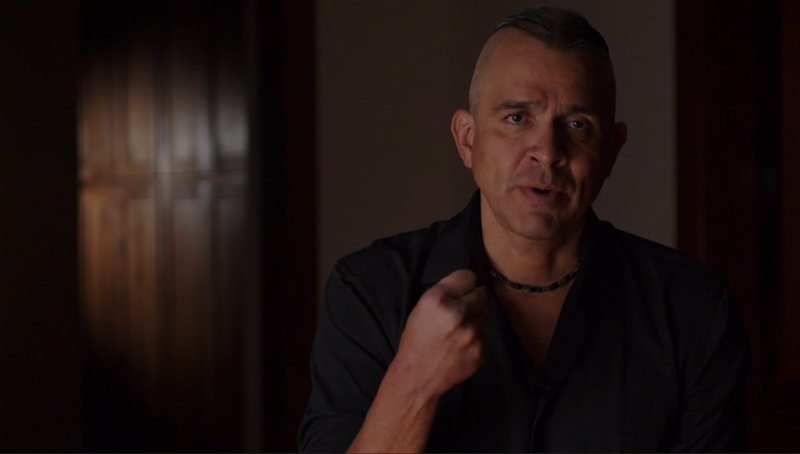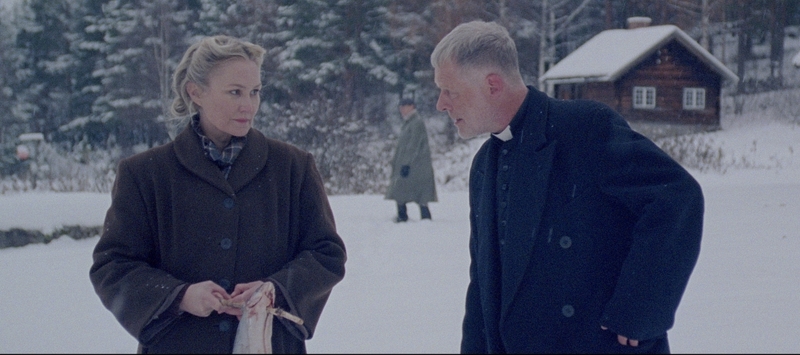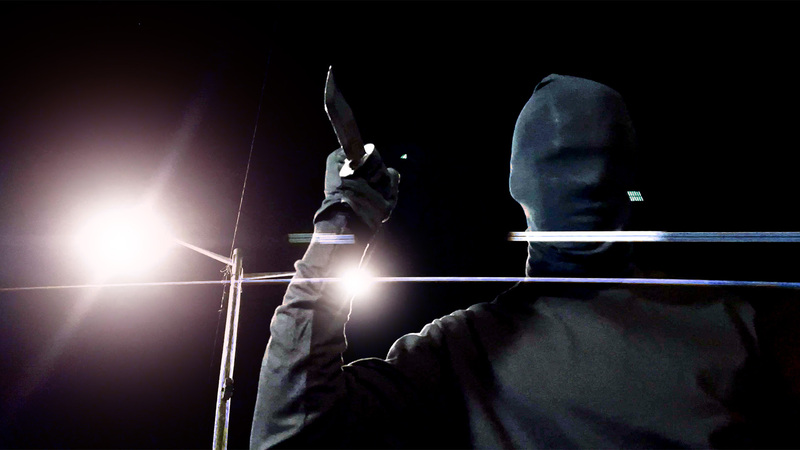
Behind the Pages: the Minds That Shape Horror
MOVIE REVIEW
First Word on Horror
–
Genre: Documentary
Year Released: 2025
Runtime: 15 x 10-15m episodes (review of episodes 1-3)
Director(s): Philip Gelatt
Where To Watch: releasing exclusively via Substack on February 7, 2025 – www.etchstudio.substack.com
RAVING REVIEW: Horror has always been a mirror reflecting our deepest fears, an ancient pulse hardwired into our DNA. The genre taps into something primal, something inescapable—survival instincts honed over centuries of darkness and the creeping sense that something is always watching. FIRST WORD ON HORROR captures this essence in its first three episodes, diving into the mind of Stephen Graham Jones, an author whose work doesn’t just acknowledge horror’s place in human nature—it lives it. With a mix of personal anecdotes, deep-cut horror analysis, and a letter to the genre’s most enduring archetype, these episodes craft an experience as immersive as the stories that shaped Jones himself.
The series doesn’t just present an author talking about horror—it unspools the fabric of their personal and creative influences, letting us see where the obsessions were born. Jones’ fascination with horror isn’t just academic; it’s visceral, rooted in lived experiences that could just as easily belong to a slasher film protagonist. From childhood encounters to the transformative moment he first watched SCREAM, these episodes make it clear that Jones’ love for horror is inseparable from his identity.
One of the most impressive elements of the first episode is its framing of fear not as something external but as an essential part of being human. Jones suggests that horror is embedded in us, a byproduct of our origins. The world may have changed, but that need for terror—the spikes of adrenaline that remind us we’re alive—never left. This argument positions horror not as an escape but as a necessary confrontation with the unknown.
Then there’s ‘Dear Final Girls,’ Jones’ poetic and unsettling letter to the archetypal last survivor of slasher films. He doesn’t just respect the final girl—he deconstructs her, reshaping what it means to be the last one standing. The letter is both a warning and an inevitability, a piece of horror philosophy disguised as a message to those who don’t yet know they’re living inside a story. It captures the weight of survival, the cost of making it to the end, and the cruel reality that just because the credits roll doesn’t mean the horror is truly over.
Throughout these episodes, Jones shares glimpses of his upbringing in West Texas, painting a picture of an environment where violence wasn’t an abstract concept but a daily reality. His childhood stories are almost cinematic in severity, moments that could be lifted straight from a horror screenplay. Whether it’s a cruel practical joke that left him convinced he was witnessing death or the moment of realizing a stranger was perfectly mirroring his footsteps on an empty street, his past is a horror story all its own.
The raw, unfiltered storytelling is what makes these episodes stand out. Jones isn’t just discussing horror—he’s living inside it, shaped by the genre as much as he contributes to it. He describes his first time watching SCREAM as a moment where the genre rewarded his lifelong dedication, where all the slasher films he had absorbed felt like homework leading to a final exam. Hearing someone articulate their love for horror with such a mix of passion and analytical precision is rare.
If there’s a critique to be made, the structure can sometimes feel slightly fragmented. The nonlinear approach adds to the atmosphere, but there are moments where a tighter focus might have amplified the impact. Additionally, while Jones’ insights are captivating, a bit more engagement with how his work has influenced modern horror fiction could have strengthened the narrative.
These episodes deliver something rare—a portrait of a horror writer that feels as unnerving as the stories he tells. FIRST WORD ON HORROR doesn’t just document a genre; it lets viewers step inside the mind of someone who understands fear on an elemental level.
Let me know if you'd like any adjustments!
Please visit https://linktr.ee/overlyhonestr for more reviews.
You can follow me on Letterboxd, Instagram, Twitter, and YouTube. My social media accounts can also be found on most platforms by searching Overly Honest Reviews.
I’m always happy to hear from my readers; please say hi or send me any questions about movies.
[photo courtesy of ETCH]
DISCLAIMER:
At Overly Honest Movie Reviews, we value honesty and transparency. Occasionally, we receive free items for review, including DVDs, Blu-rays, CDs, Vinyl, Books, etc. We assure you that these arrangements do not influence our reviews, as we are committed to providing unbiased and sincere evaluations. We aim to help you make informed entertainment choices, regardless of our relationship with distributors or producers.
Amazon Affiliate Links:
Additionally, this site contains Amazon affiliate links. If you purchase through these links, we may receive a commission. This affiliate arrangement does not affect our commitment to honest reviews and helps support our site. We appreciate your trust and support in navigating these links.



Average Rating